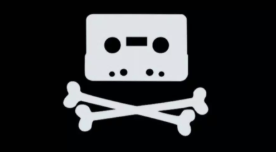Late 2019, Internet provider Cox Communications lost its legal battle against a group of major record labels.
Following a two-week trial, a Virginia jury held Cox liable for its pirating subscribers. The ISP failed to disconnect repeat infringers and was ordered to pay $1 billion in damages.
Heavily disappointed by the decision, Cox later asked the court to set the jury verdict aside and decide the issue directly. In addition, the company argued that the “shockingly excessive” damages should be lowered. Both requests were denied by the court, which upheld the original damages award.
Despite the setbacks, Cox isn’t giving up. The company believes that the district court’s ruling isn’t just a disaster for Internet providers. If it stands, the verdict will have dramatic consequences for the general public as well.
Cox Files Appeal Brief
This week the ISP submitted its opening brief at the Court of Appeals for the Fourth Circuit, hoping to reverse the lower court’s judgment. The filing begins by placing the lawsuit in a historical context.
“The music industry is waging war on the internet,” Cox’s lawyers write. First, the music companies went after thousands of file-sharers and software companies such as Napster. When those tactics didn’t deliver the desired result, Internet providers became a target.
“So, 15 years after Napster, the music industry launched an aggressive new strategy: Attack the internet itself, suing the internet service providers — the cable and phone companies, like Defendant Cox Communications, that deliver the internet.”
How to Handle Repeat Infringers
The entire dispute revolves around the legal obligations Internet providers have when it comes to pirating subscribers. According to the law, ISPs must adopt and reasonably implement a policy that allows them to terminate the accounts of repeat infringers in appropriate circumstances.
According to the music companies, this means that ISPs should terminate accounts after rightsholders send several infringement notices, regardless of the circumstances.
However, Cox and other ISPs have historically been very hesitant to disconnect subscribers, in part because they believe it’s ‘not appropriate’ to disconnect entire companies or households from the Internet. Cox reiterates this stance in its appeal brief.
Impossible Spot
“The legal rules Plaintiffs advocate put ISPs in an impossible spot. ISPs will have to boot entire households or businesses off the internet— cutting their lifelines, their livelihoods, and their social connections— based on a few isolated and potentially inaccurate allegations.
“Or they will have to invade our privacy by developing new capabilities to monitor our internet usage 24/7 to ferret out illegal activity. The internet will never be the same,” Cox adds.
This doesn’t mean that Cox simply ignored piracy. The company was actually one of the first US ISPs to implement its own ‘graduated response’ system to address copyright infringers. According to the music companies, however, these warnings and temporary disconnections were not good enough.
According to Cox, the district court and the jury were wrong to side with the record labels for a variety of reasons.
Vicarious Infringement
The first argument is that an ISP should not be held vicariously liable for pirating subscribers when it doesn’t directly profit from this activity.
“Cox receives no ‘direct financial benefit’ from infringement. Its subscribers pay the same flat fee for internet services whether they infringe or not. Subscribers are in no sense acting in Cox’s financial interest by downloading songs,” Cox writes.
Adding to that, the ISP stresses that it can’t control or supervise its six million subscribers. Blocking or policing infringing activity is impossible, which also weighs against vicarious liability.
Contributory Infringement
The contributory liability verdict should be overturned as well, according to Cox. The district court was wrong to conclude that past infringement notices gave Cox enough reason to believe that subscribers would pirate again in the future.
Separately, Cox argues that the district court was wrong to conclude that the ISP ‘materially contributed’ to pirating activities simply because people can use Internet access that way.
“That means Cox cannot be liable based on ‘generalized knowledge’ that people infringe on its network; instead, Plaintiffs had to prove Cox knew of the ‘specific instances of infringement’ for which it was being held liable.”
Excessive Damages
In addition to overturning the vicarious and contributory liability verdicts, Cox also argues that the $1 billion damages award was wrong. This figure covers thousands of works that should not have been counted and is many times higher than the actual harm.
“The district court’s errors have resulted in an award of historic proportions. The $1 billion judgment is entirely untethered from both the harm it caused —$692,000 in displaced downloads — and Cox’s culpability.”
Cox says it didn’t directly infringe any of the music tracks, nor did it encourage anyone to infringe. Its liability rests on the decision to keep subscribers connected longer than the music companies liked.
The ISP hopes that the Court of Appeals will reverse or vacate the district court ruling. If not, the consequences will be devastating.
“If sustained, this judgment would elevate the interests of the music industry over those of ordinary, and often blameless, people who depend on the internet. The consequences will be devastating,” Cox concludes.
—-
A copy of Cox’s opening brief, filed at the Court of Appeals for the Fourth Circuit, is available here (pdf).


 Late 2019, Internet provider Cox Communications lost its legal battle against a group of major record labels.
Late 2019, Internet provider Cox Communications lost its legal battle against a group of major record labels.



